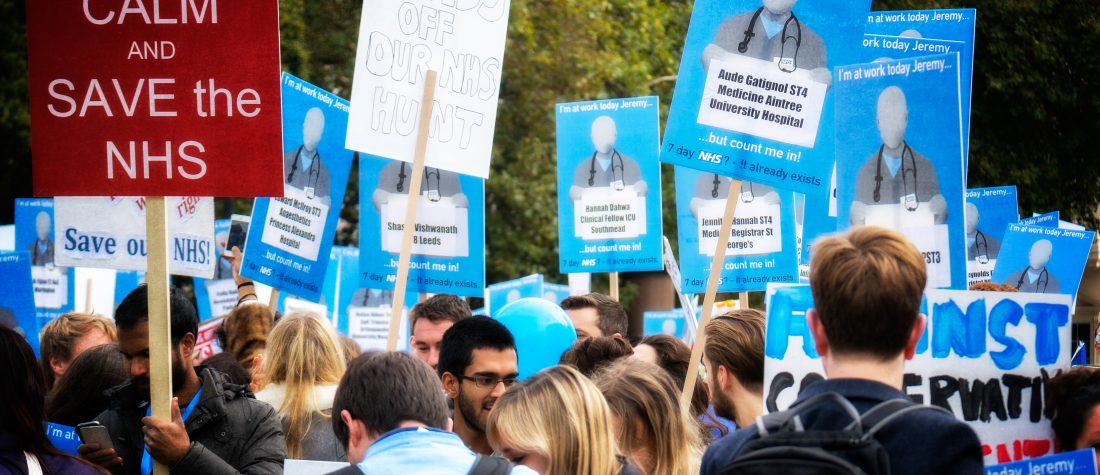Health systems across Europe are suffering their worst winter crisis in recent memory. Under the weight of covid-19 related backlogs, the annual pressure of the winter flu season, and covid-19 itself, which hospitalised over 5,500 people last week in England, healthcare resources are scarce and becoming scarcer still.
In the UK, the Telegraph reports that over 480,000 enrolled in private health insurance plans last year as uncertainty grows about the level of healthcare provision by the NHS. Strikes, lengthening waiting lists, and political interventions from both major parties has fuelled demand for private provision.
Nowhere is the capacity more overstretched than in the case of mental health services. The subject of significant clamour for additional resources in the best of times, mental health resources in the context of the ongoing healthcare crisis have become so anaemic that 26% of referrals for CAMHS (child and adolescent mental health services) are rejected. This at a time when CAMHS referrals overall have soared by 39%, representing 1,169,515 under-18’s in need of a mental health solution.
While some may be able to turn to healthcare insurance to secure access to treatment against any future mental health needs, for others this option is not feasible, not least because existing conditions are seldom covered by insurance policies. Others simply cannot afford it. There are strong links between familial stability and community ties and both mental health and financial well-being. Therefore, those most isolated from family and community are often those most in need of mental health services and least able to afford them.
Because of this, a growing cohort of Europeans face the unenviable task of tackling the first part of their mental health journey without assistance from the state. Non-state solutions, including commercial, charitable, personal, community and educational approaches, are nonetheless available to those willing to seek them out.
Mental Health UK, for instance, offer free programmes focusing on the understanding of mental health issues, peer support platforms such as ‘Clic’, and advice to manage causes of stress such as debt and isolation. Betterhelp are a company offering qualified counsellors over the internet at very short notice, with hourly rates around £50-80, for those able to afford it.
Personal approaches are those methods and secular techniques advocated by mental health practitioners for the private management and maintenance of one’s own mental health. At the highest level, these solutions involve looking after ourselves, which may include cutting down on alcohol and cigarettes, achieving a healthier work-life balance and getting plenty of both sleep and exercise.
At the deepest level, personal solutions to mental health will be those which allow a person to de-stress and improve their attitude towards their life and their problems. Cognitive behavioural therapy (CBT) is a form of treatment which one can practice alone, by asking ourselves questions about our thoughts, feelings, beliefs and the reasons for them. It has been shown that by gradually changing the way we think about our anxieties, CBT can relieve depression as well as mental and even physical health problems such as obesity or anorexia.
Mindfulness is another treatment both for anxiety and for low mood and self-worth. By becoming more aware of the present moment, and focusing on the details of our current experience, we allow ourselves to move away from other thoughts, so becoming more self-aware, calm and forgiving towards ourselves. Mindfulness is a skill which can be improved, though certain practices such as chewing gum, specifically focusing on the flavour, texture, and the repetition of the chewing, have been shown to bring the benefits of mindfulness even without such a need to set aside time to focus and practice.
Finally, community and educational approaches to improving mental health do include dedicated initiatives such as community sports, societies and clubs, as well as peer support groups such as Alcoholics Anonymous and Grief share. Yet they also include options for informal counselling through your place of worship, your place of work, or place of study. Building mentor/mentee relationships in these environments have been shown to decrease feelings of anxiety and loneliness and give direction and structure to those suffering with various mental health issues.
While clinical solutions remain critically important to the well-being of those suffering, it is crucial to remember during this time of scarce mental health resources that options do remain open to us.


